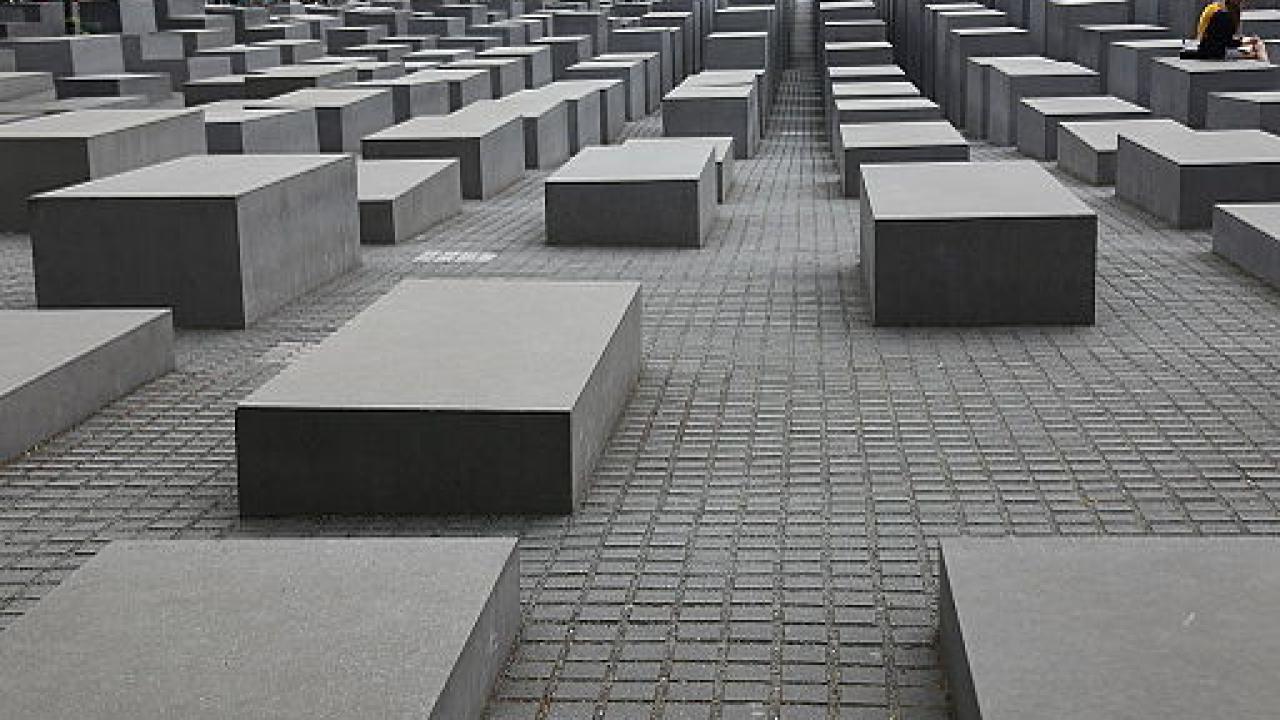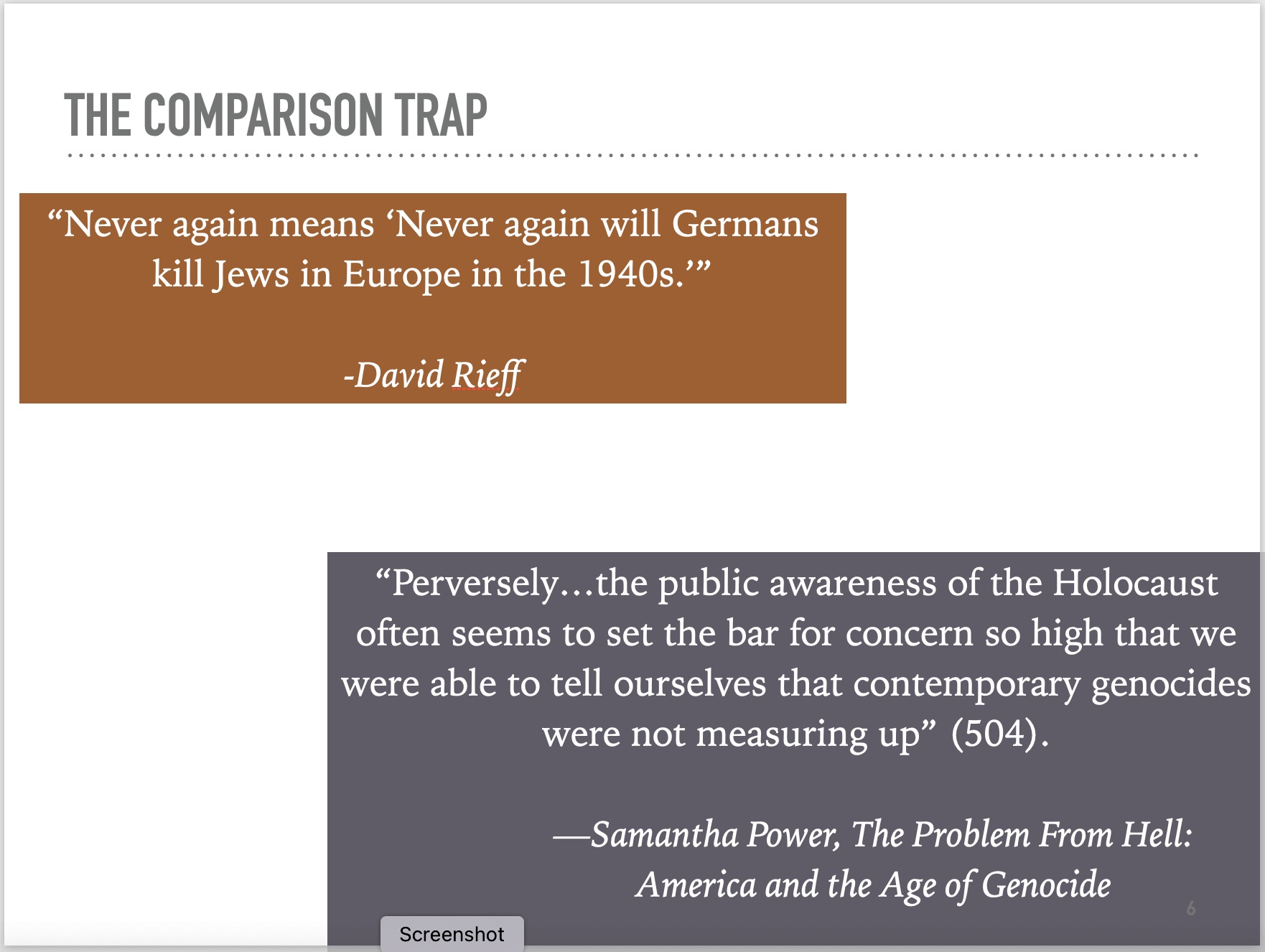
Session 2
Beyond Compare: The Politics of Comparison in Human Rights and Genocide Studies
Quick Summary
- How do we compare suffering and when we do, what are the consequences for human rights?

Beyond Compare: The Politics of Comparison in Human
Rights and Genocide Studies
Summary: In the summer of 2019, a newly elected Freshman member of Congress, Representative Alexandria Ocasio-Cortez, announced, via the social media platform Twitter, that “the U.S. is running concentration camps on our southern border.” Twitter immediately buzzed in response with a debate over the accuracy and appropriateness of the comparison. Was the comparison between a claimed human rights violation at the Southern Border and the Holocaust appropriate, or was it appropriation? And who had the authority to decide?
Convenor and Converser
Deb Donig is an Assistant Professor of English at Cal Poly and a lecturer in UC Berkeley’s iSchool. She is the co-founder of the Cal Poly Ethical Technology Initiative and the host of the “Technically Human” podcast. As a public scholar, she consults in the tech industry and in film and tv, including “Weight of the World,” a series about the memory of slavery, and Hunters, produced by Jordan Peele. She previously served as a policy expert for the Biden/Harris Higher Education Policy Strategy Team. Her first book project traces the evolution of comparative approaches to genocide and human rights. She is a graduate of UC Davis.
Amila Becirbegovic is an Asst. Prof. of Modern and Classical Language and Literature at CSU Fresno and received her Ph.D. in German Literature and Critical Theory from tUC Davis, where she was awarded the Humanities Research Institute Grant for her work on Bosnian and Turkish refugees in Germany, as well as the Provost Fellowship for her work on contemporary Holocaust memory. Originally from Bosnia and Herzegovina, Dr. Becirbegovic lived in Hannover, Germany, before moving to the United States. She has taught Genocide Education and German language, literature and film courses to secondary and post-secondary students in the U.S. for over 15 years. Dr. Becirbegovic is interested in 20th century visual culture, with a specific focus on atrocity and genocide representations and cultural (re)memory. As part of her research, she is analyzing how pedagogical approaches and representations of the Holocaust and Germany’s postwar memorialization influence and inform new generations, contemporary conflicts and refugee politics.
In this session, we will talk about the nature of comparison at the heart of the history and politics of genocide and human rights discourse. We'll talk about how we got to a politics and discourse of comparison, and, attempting to move beyond conversations that debate whether the Nazi brutalities can be compared, we'll look at what comparison allows or generates--or perhaps blocks or forecloses--as a legal, political, and rhetorical approach to identifying and responding to human rights violations around the globe, particularly for marginalized groups that may lack political or representational capital.
The Problem of Comparison
What has the rise of the field of "comparative genocide studies," meant for the ethics and efficacy of comparative approaches in pedagogy, public scholarship, museums, public policy, and social justice.
Attached are three sets of readings. One is the copy of Article 6, Clause c from the archive, the final version with the comma linking the crimes against humanity definition to a prior crime of war; the other with the semicolon, which would legally make crimes against humanity distinct from a prior act of aggressive war, rather than parasitic to it. I've also included some of the interesting documents that discuss the architecture of that article. We can deliberate over the comma and the implications, particularly for African and Native American contexts--as well for Ukraine,potentially. Another is an important essay by M NourbeSe Philip, author of the iconic book Zong!, about the iconic Zong massacre, and her approach to Caribbean history, and the broader history of the transatlantic slave trade, via the Holocaust. The third is Morrison's dedication, in Beloved, to the "60 million and more," which I think you'll find interesting in its total quotation and its allusion to comparison.
